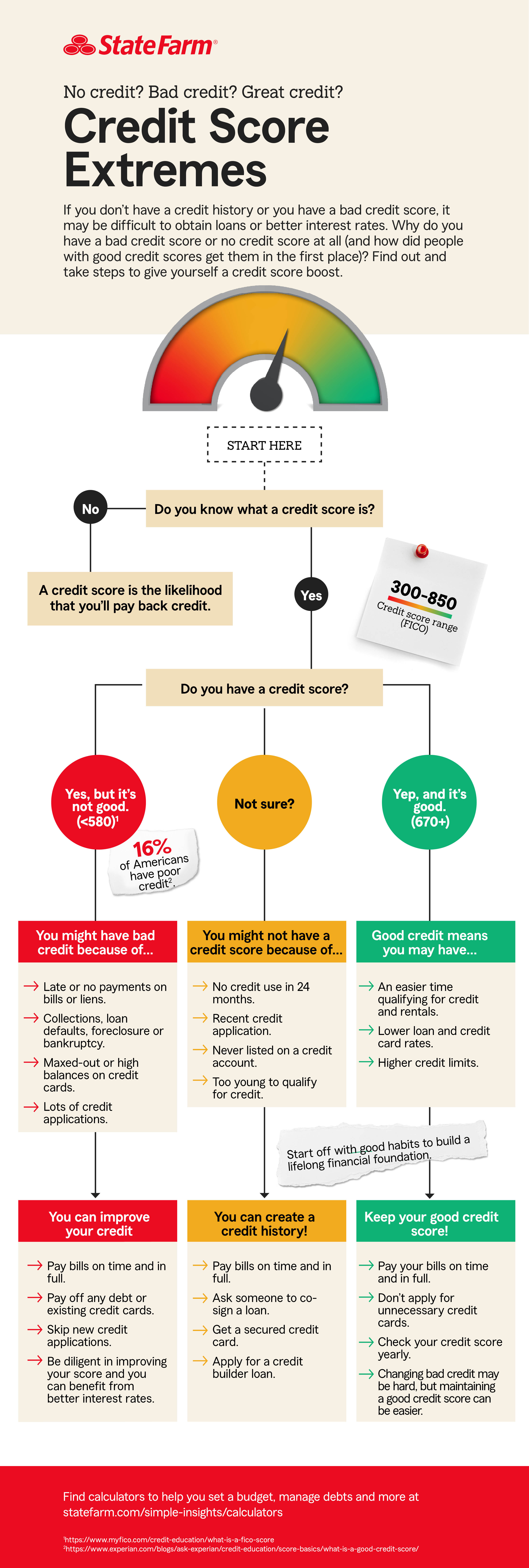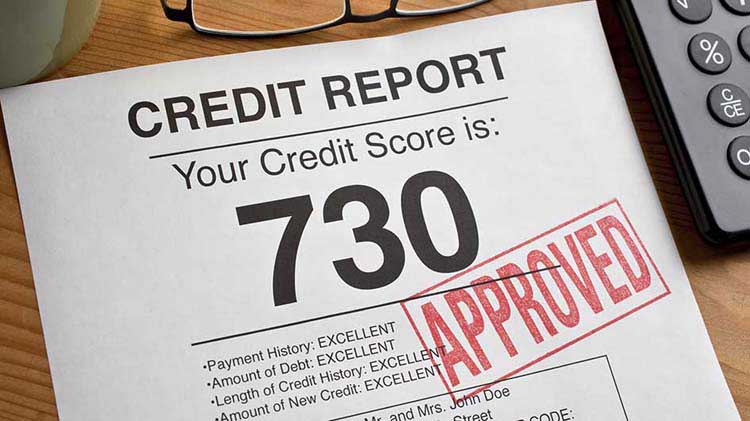How to rebuild credit
Make the moves necessary to successfully improve your credit score. See ways to do it here.
Rebuilding credit, potential jobs and corrections to your credit report
Improving your credit score is possible, and you can rebuild a poor credit history. Understanding what goes into your credit score can help you understand how to rebuild it.
Rebuilding credit
Here are some actions you may take in order to help you rebuild credit:
- Check your credit card account online regularly. Look over your purchases to make sure they were accurately charged, as mistakes can be made. If you see a late fee from your last payment, make sure you find out why and pay before it's 30 days late.
- Pay your bills on time to have a positive impact on your credit report, since bills over 30 days late will appear on your report. Payment history is the biggest factor of your credit score. Late payments can remain on your report for 7 years from the original delinquency. If you begin paying on time now and stay current, your past late payments will affect your score less and less over time and can one day drop off.
- Keep your credit utilization below 30%. Credit utilization is the second most important factor after payment history. Credit utilization ratio is the relation between your available revolving credit and your revolving credit balance. Revolving credit includes revolving loans like your credit cards and does not include non-revolving loans such as your mortgage or auto loan. And if you can keep your credit utilization at 10% or below, that will be even better for your credit score.
- Be aware that bankruptcies will stay on your credit report for 10 years. Don't let that deter you from building your credit: the impact will lessen over time. Continue making payments on time and keep your credit utilization rate low.
- Add a monthly recurring charge (cell phone bill, gym membership, etc.) to keep old credit cards active. This can help you keep a low credit utilization rate because you're using less of your available credit.
- Secured credit cards are an option if your credit score doesn't allow you to have a regular (unsecured) credit card, if you don't have any credit history and want to build it up safely, or if you want to place a limit on how much you can spend on your card. These differ from regular (unsecured) credit cards because they require you to place a deposit in order to be granted a line of credit. The line of credit is generally equal to your deposit. Credit issuers can then use that deposit as collateral if you're unable to pay.
- Becoming an authorized user on a credit card can be a great way to improve credit score. An authorized user is someone who is added to the primary cardholder's credit card account. The authorized user is allowed to use the primary cardholder's card and can have their own card issued with their name on it. If the primary cardholder makes their payments on time, their payment history can have a positive impact on your credit. However, if they don't make their payments on time, you may want to reconsider being added to their card, as the late payments can have a negative impact on your credit.
How long does it take to rebuild credit?
- The length of time for improvement depends on what is on your credit report. If you have a lower credit score or no credit history, you might see an improvement within a few billing cycles just by paying your loans and/or credit cards on time and lowering your credit utilization rate.
- Communicate with institutions and lenders if you are having difficulty paying your bills. They will generally work with you. If a lender is able to remove any negative history from your report, you could see significant improvement as you continue to pay your bills on time.
Annual credit report
When you request a credit report, make sure everything on the report is correct. If you need to, there are instructions included with your credit report on how to dispute any false information. This is important because all of the information in the report determines your score. Removing incorrect information could cause a quick bump up in score. Other things to keep in mind about your credit report are:
- AnnualCreditReport.com allows you to pull one credit report from each credit bureau every 12 months (Pro tip: Instead of pulling all three every 12 months, pull one bureau every four months).
- Credit repair companies can pull your credit to help, but in reality, you can repair things yourself without the added expense.
- Save credit reports for your own records.
Build a plan for how to fix your credit
There are five factors that impact your credit score, and how they interact with your financial decisions day to day is important for understanding what actions you can take now to begin rebuilding credit. Some steps to take are:
- Look at your credit report to pinpoint where your setback happened — such as high credit card balances, missed payments or too many open accounts.
- Turn the knowledge of what happened in the past into improved actions today.
- Begin making decisions to establish and improve your credit.
Your checklist:
- Download the Credit myths: Discredited worksheet.
- Check your credit score.



